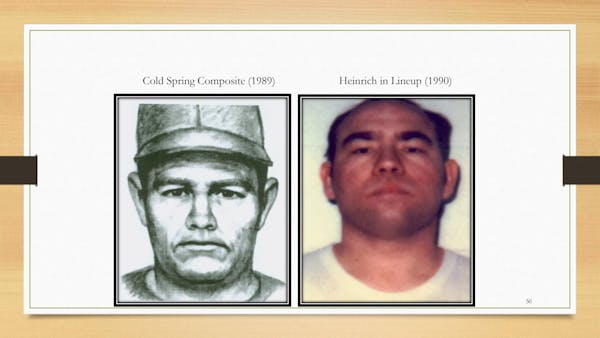1. Investigators should have more thoroughly pursued reports of assaults of young boys in the Paynesville, Minn., area between August 1986 and late fall 1988 that showed strong similarities to the kidnapping of Jacob Wetterling. Paynesville is about 30 miles from St. Joseph, Minn., where Jacob was abducted in October 1989 while headed home from a convenience store with his brother and best friend.
2. A drawing of the suspect in the Cold Spring abduction bears strong resemblance to a photograph of Heinrich used in a 1990 photo lineup after Jacob's abduction. Investigators should have given it more weight.
3. A fiber found on the Cold Spring victim's snowmobile suit was consistent with fibers from Heinrich's Mercury Topaz. Again, it was an important but underplayed clue.
4. After the FBI took over the investigation within days of Jacob's abduction, investigators followed thousands of erroneous and farfetched leads across the country rather than sufficiently focusing on compelling local evidence.
5. Other victims from the Paynesville and St. Joseph assaults should have been present during a January 1990 lineup that included Heinrich. Investigators also failed to conduct a voice lineup. Victims said their attacker had a low, raspy voice.
6. Investigators erred in February 1990 when they arrested a drunk Heinrich late at night at a bar and interviewed him.
7. Despite the fact that Heinrich was an early suspect, there is no mention of him in the case files for more than 20 years.

Want to share info with the Star Tribune? How to do it securely

'Safe recovery sites' would offer syringes, naloxone and more to people using drugs. The plan could be in peril.
New Minnesota GOP leaders seek peace with party's anti-establishment wing

Who is Republican Lisa Demuth, Minnesota's first House speaker of color?

